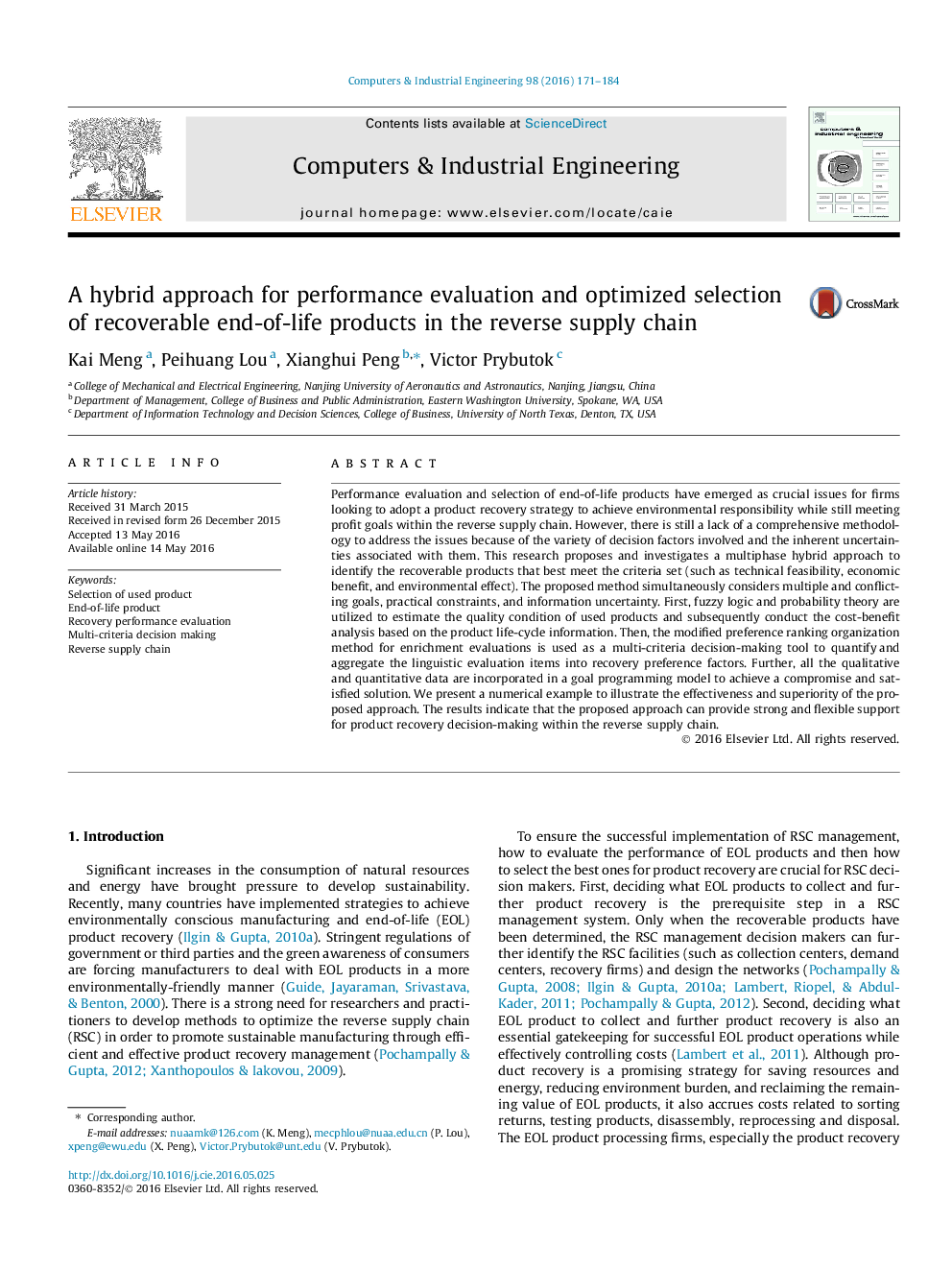| کد مقاله | کد نشریه | سال انتشار | مقاله انگلیسی | نسخه تمام متن |
|---|---|---|---|---|
| 1133320 | 1489068 | 2016 | 14 صفحه PDF | دانلود رایگان |
• Propose a novel hybrid approach that involves three phases.
• Consider quantitative and qualitative criteria to evaluate EOL product performance.
• Establish an optimization model with conflicting objectives and constraints.
• Estimate general quality condition and potential recovery value of EOL product.
• The numerical example illustrates effectiveness and superiority of the approach.
Performance evaluation and selection of end-of-life products have emerged as crucial issues for firms looking to adopt a product recovery strategy to achieve environmental responsibility while still meeting profit goals within the reverse supply chain. However, there is still a lack of a comprehensive methodology to address the issues because of the variety of decision factors involved and the inherent uncertainties associated with them. This research proposes and investigates a multiphase hybrid approach to identify the recoverable products that best meet the criteria set (such as technical feasibility, economic benefit, and environmental effect). The proposed method simultaneously considers multiple and conflicting goals, practical constraints, and information uncertainty. First, fuzzy logic and probability theory are utilized to estimate the quality condition of used products and subsequently conduct the cost-benefit analysis based on the product life-cycle information. Then, the modified preference ranking organization method for enrichment evaluations is used as a multi-criteria decision-making tool to quantify and aggregate the linguistic evaluation items into recovery preference factors. Further, all the qualitative and quantitative data are incorporated in a goal programming model to achieve a compromise and satisfied solution. We present a numerical example to illustrate the effectiveness and superiority of the proposed approach. The results indicate that the proposed approach can provide strong and flexible support for product recovery decision-making within the reverse supply chain.
Journal: Computers & Industrial Engineering - Volume 98, August 2016, Pages 171–184
